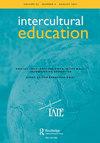虚拟世界中的模拟:改善群体间关系和社会接近度
IF 0.8
Q3 EDUCATION & EDUCATIONAL RESEARCH
引用次数: 0
摘要
摘要本文研究了在虚拟世界中使用体验式学习和模拟的干预措施,该干预措施可以促进不同社会中的社会接近、宽容和合作。这项研究的参与者是125名居住在以色列的犹太和阿拉伯学生。重复测量分析的混合线性模型包括测量时间(前后)、种族和学生年龄作为自变量,揭示了本研究中大多数社会群体对时间的主要影响;也就是说,参与者在课程结束后报告与其他群体的社交距离更近,包括课程中未学习的群体(LGBTQ社区和有色人种)。研究结果表明,体验式学习在教育领域具有相当大的潜力,可以帮助学生质疑自己的偏见,体验成为他人的经历,并最终感受到与他人的社会亲近感,从而减少污名和种族主义。本文章由计算机程序翻译,如有差异,请以英文原文为准。
Simulations in virtual worlds: improving intergroup relations and social proximity
ABSTRACT This paper examines an intervention using experiential learning and simulations in a virtual world that can promote social proximity, tolerance, and cooperation in diverse societies. The participants in the study were 125 Jewish and Arab students living in Israel. A mixed linear model for repeated measures analysis that included time of measurement (pre and post), ethnicity, and students’ age as independent variables revealed a main effect for time for most social groups included in this study; that is, the participants reported more social proximity to other groups after the course, including groups not studied in the course (the LGBTQ community and people of colour). The results of the study suggest that experiential learning has considerable potential in the field of education to help students question their prejudices, experience being someone else, and ultimately feel social proximity for the other, thus reducing stigmas and racism.
求助全文
通过发布文献求助,成功后即可免费获取论文全文。
去求助
来源期刊

Intercultural Education
EDUCATION & EDUCATIONAL RESEARCH-
CiteScore
2.30
自引率
8.30%
发文量
36
期刊介绍:
Intercultural Education is a global forum for the analysis of issues dealing with education in plural societies. It provides educational professionals with the knowledge and information that can assist them in contributing to the critical analysis and the implementation of intercultural education. Topics covered include: terminological issues, education and multicultural society today, intercultural communication, human rights and anti-racist education, pluralism and diversity in a democratic frame work, pluralism in post-communist and in post-colonial countries, migration and indigenous minority issues, refugee issues, language policy issues, curriculum and classroom organisation, and school development.
 求助内容:
求助内容: 应助结果提醒方式:
应助结果提醒方式:


